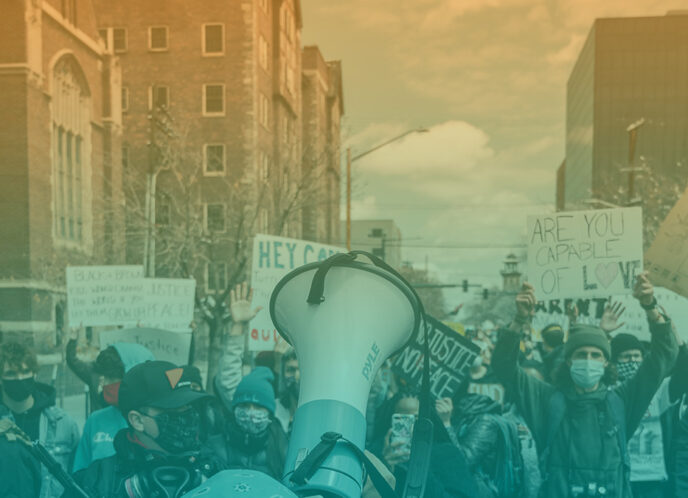Derek Chauvin was found guilty of second-degree murder, third-degree murder, and second-degree manslaughter in the killing of George Floyd—but his isn’t about one bad apple, it’s about the entire criminal legal system. The system has protected officers like Chauvin for decades, with very few cases of officers even losing their jobs, let alone facing federal charges or monetary reparations, for killing Black and brown people. Since Chauvin’s trial began on March 29, police have killed at least 64 Americans — more than half of them Black and Latinx. Of course, charges and convictions represent a very rare method of so-called police department “accountability.” What’s far more common is an officer resigning and/or stepping down. It’s more common than not that police aren’t ever convicted of shooting and killing a person the way that regular civilians are. Even when a police officer isn’t forced to resign or relieved of duty, they’re often handed down nothing more than a disciplinary slap on the wrist. Another consistent form of “accountability” is payments to victims and/or their families in cases of police brutality and wrongful deaths. MediaJustice’s James Kilgore, media fellow and author of Understanding Mass Incarceration spoke to Refinery29 about this troubling pattern.
“The evidence in the case overwhelmingly showed that Chauvin committed this horrendous murder. While it is gratifying that the jury was able to see through the veil of fabrications that were put forward in Chauvin’s defense, at the same time, as soon as the jury pronounced the verdict in this case, we were mourning the death of a young Black woman killed by police gunfire in Columbus, Ohio. And we are yet to bury another Black man, Daunte Wright. We cannot build enough prison and jail cells to meet these challenges. We need to dismantle the racialized systems of policing and incarceration and explore possibilities for using the billions of dollars we spend to police and cage people on building healthy, thriving communities, devoid of hatred, violence, and despair.”
James Kilgore in Refinery29



